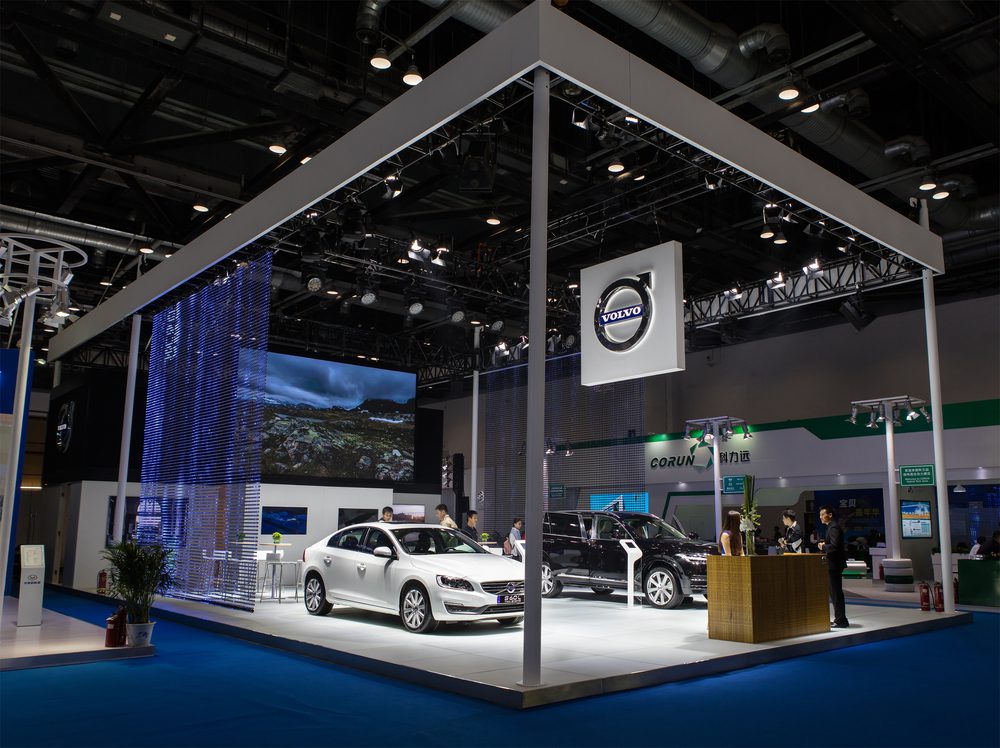The 2020 Beijing International Automotive Exhibition kicked off on Saturday, Sept 26 as the first major auto show since the coronavirus pandemic began after initially being postponed from its original April date. Huge crowds were present in the exhibition center as the event got underway despite the heightened awareness of health, a clear signal of a desire to return to normalcy.
The Beijing auto show’s floor was markedly less packed with vehicles on display as carmakers pulled back on marketing efforts and new model releases have been delayed or cancelled. Although nearly 800 vehicles are on display, it’s about 200 fewer than the event typically sees.
Electric Cars the Hot Commodity
The Chinese are known as early adopters that embrace technology, and that was evident from the cars on stage in Beijing. Virtually every stable had electrified models being shown, from the ever-popular Tesla EVs and Porsche Taycan to premieres of the Buick Electra concept and GAC’s Honda lookalike Vezel electric SUV.
Porsche China’s CEO Jens Puttfarcken told CNBC, “The electrical market in general is, like the whole automotive market, is a highly competitive market. Especially here in China where we see here a lot of brands that are unknown to the rest of the world, building up very interesting products and very highly sophisticated technologies.”
Fitch Ratings director of corporate research Jing Yang weighed in on electrification in China too. “This market is going to grow fast because in the end, the EV penetration in China is going to rise, (and) the high-end segment is going to be the first to be penetrated.”
Luxury Models in Demand
Notably, it’s the high-end models like the Tesla Model S and the coming Porsche Taycan that have been most sought after in China. Like in the United States, COVID-19 had little effect on top income earners with disposable income who are in the market constantly for new, desirable vehicles.
But it isn’t just electric cars that in demand in China. The Beijing auto show also features hundreds of models like the Infiniti QX60 Monograph concept, the public premiere of the new Mercedes-Benz S-Class, Rolls-Royce Ghost models, and the Hyundai RM20e prototype EV sports car.
Pullback on Non-Luxury Sales
Again in a similar fashion to North American markets, the vast majority of people Chinese people were concerned over coronavirus and experienced the most financial uncertainty. The result was the nearly 90% drop in sales during the early stages of the pandemic in China. Although it’s sprung back surprisingly well after the economy reopened to pre-pandemic levels, it’s that segment that is still most susceptible if there were to be another wave.
The North American auto industry hasn’t seen exactly the same trends in retail, though. Non-luxury sales have returned close to normal levels after not seeing quite the same sales depression in the early and middle stages.
The major difference in the Chinese and American auto industries seems to be in the high-priced sales, especially EVs, that make up such a small portion of the revenue in the US market. Based on previous trends, it can be assumed that American auto shows will lean heavily toward the EVs and non-fossil fuel vehicles like they did in the Beijing show. And that’s a sign of what to expect for the future of auto sales worldwide.
Did you enjoy this article from Jason Unrau? Read other articles from him here.
Be sure to follow us on Facebook and Twitter to stay up to date or catch-up on all of our podcasts on demand.

While you’re here, don’t forget to subscribe to our email newsletter for all the latest auto industry news from CBT News.








